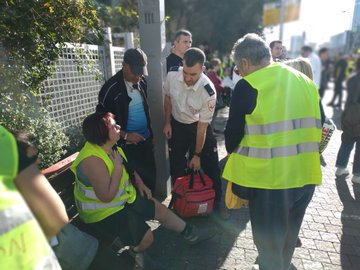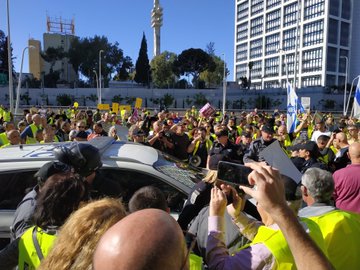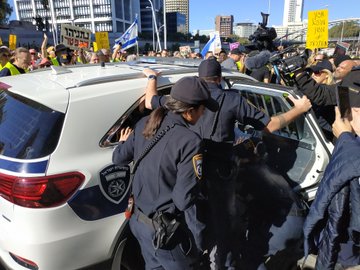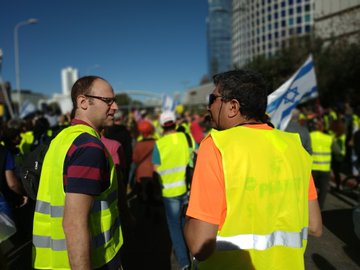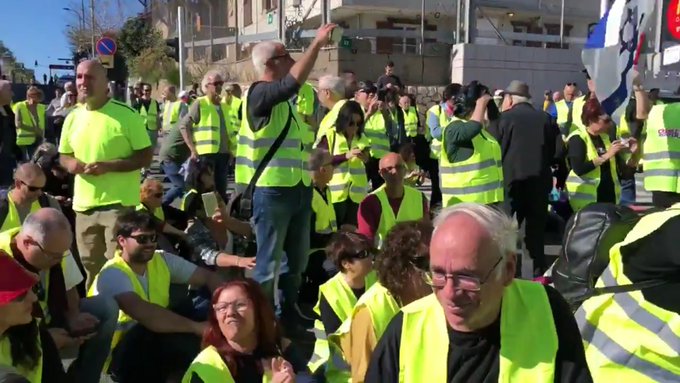 The protests, which were renewed on Friday in Tel Aviv and called "yellow jackets", saw clashes between demonstrators and security forces.
The protests, which were renewed on Friday in Tel Aviv and called "yellow jackets", saw clashes between demonstrators and security forces.
The protest came in response to an invitation on social networking sites to Baha few hundred in Tel Aviv and dozens in Jerusalem, in protest against the high cost of living announced for 2019. This week, the Israeli press reported an expected rise in food, electricity and water prices, as well as telephone subscriptions and local taxes.
This rise is under the influence of the shekel depreciation against the dollar and the euro, while the cost of living is already high in Israel.These Israeli flags carried banners with slogans denouncing the cost of living, and they wanted to follow the French model.
"Fighting the rising cost of living has just begun," said Azi Nagar, 63, a protester at the French square in Jerusalem, close to Prime Minister Benjamin Netanyahu's home.
"We want to draw inspiration from the French model for real changes," said the activist from the opposition Labor Party.
Finance Minister Moshe Kahlon announced this week the creation of a special committee to find solutions to the problem of cost of living.
In 2011, tens of thousands of activists took part in a major protest against the cost of living, but did not produce tangible results.
"The situation has not improved since 2011, and it has even worsened," said Shai Cohen, a supporter of the "yellow jackets" and among those responsible for the 2011 protests.
Despite good economic growth, low unemployment and inflation, 20 percent of Israelis live below the poverty line.
